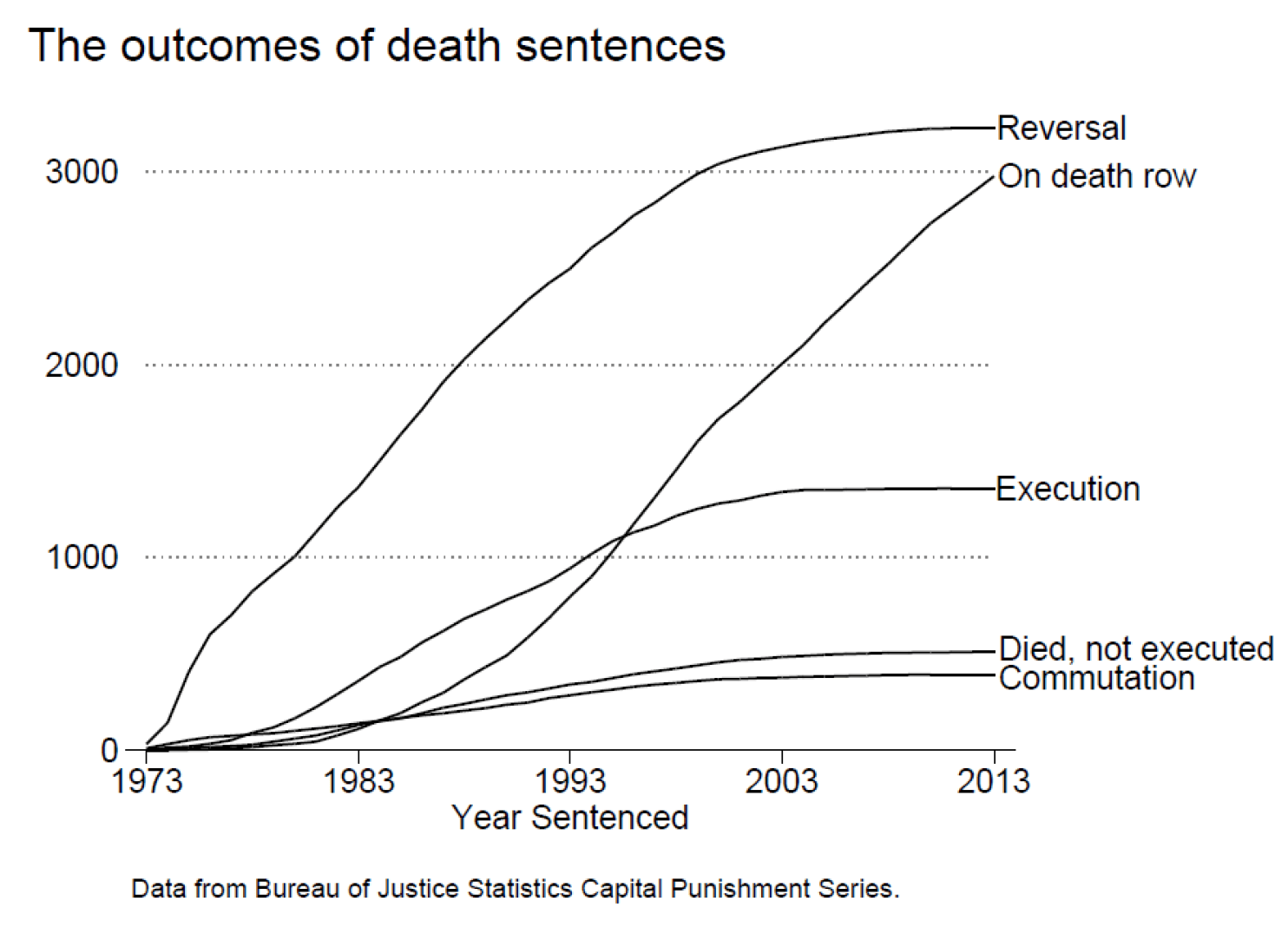Entries by Death Penalty Information Center
News
Mar 24, 2015
NEW VOICES: Lead Prosecutor Apologizes to Death Row Exoneree, Urges State to Offer Compensation
UPDATE: After Louisiana denied compensation to Mr. Ford — who is in hospice care, dying from Stage 4 cancer — Stroud gave an interview to the Huffington Post in which he says “death penalty prosecutions are a badge of showing how out-of-touch we are with other civilized societies.… We can’t trust the government to fix potholes. Why should we believe they can design a death penalty system that’s fair?” PREVIOUSLY: In a letter to the Shreveport (Louisiana)…
Read MoreNews
Mar 23, 2015
Pope Francis Calls Death Penalty Inappropriate “No Matter How Serious the Crime”
In a letter to the President of the International Commission Against the Death Penalty, Pope Francis expressed the Catholic Church’s opposition to the death penalty, calling it “inadmissible, no matter how serious the crime committed.” He continued, “It is an offence against the inviolability of life and the dignity of the human person, which contradicts God’s plan for man and society, and his merciful justice, and impedes the penalty from fulfilling any just objective. It…
Read MoreNews
Mar 20, 2015
NEW VOICES: Murder Victim’s Widow Supports Clemency for Husband’s Killer
Mamie Norwood, whose husband, Amos, was killed by Pennsylvania death row prisoner Terry Williams (pictured), recently wrote a letter to two state officials asking them to “stop trying to execute Terry…
Read MoreNews
Mar 19, 2015
INNOCENCE: Debra Milke Exonerated from Arizona Death Row
UPDATE: On March 23, 2015, Judge Rosa Mroz officially dismissed the charges against Milke. Milke has been added to DPIC’s exoneration list. See Milke’s statement on her exoneration. PREVIOUSLY: On March 17, the Arizona Supreme Court denied a request by prosecutors that it review a lower court’s order that dismissed the charges against Debra Milke as a result of “egregious” police and prosecutorial misconduct and barring her…
Read MoreNews
Mar 18, 2015
STUDIES: Most Likely Outcome of Death Sentence Is That It Will Be Reversed
A new study from researchers at the University of North Carolina at Chapel Hill finds that the most likely outcome for a capital case once a death sentence has been imposed is that the defendant’s conviction or sentence will be reversed on appeal. Execution is only the third most likely…
Read MoreNews
Mar 17, 2015
Ohio Officials Say Death Penalty System Has Serious Flaws
Legislators in Ohio are seeking to enact death penalty reforms as the state grapples with problems in the application of capital punishment. Sen. Bill Seitz, a Republican, and Sen. Sandra Williams, a Democrat, are working on four bills to address some of the reforms recommended by the Ohio Supreme Court Death Penalty Task Force last year. The bills would prevent the execution of defendants with serious mental impairments, establish a fund for indigent…
Read MoreNews
Mar 16, 2015
Key Witness In Cameron Willingham Trial May Have Testified In Exchange for Reduced Sentence
A previously undisclosed letter written by jailhouse informant Johnny E. Webb, a crucial witness in the trial of Cameron Willingham (pictured) in Texas, indicates that Webb’s sentence may have been reduced in exchange for his testimony that Willingham had confessed to intentionally starting a house fire that killed his three daughters. The defense had never been informed of the existence of any deal between Webb and prosecutors in the case. Willingham was…
Read MoreNews
Mar 13, 2015
Growing Number of Pharmaceutical Companies Object to Use of Drugs in Executions
On March 4, Akorn Pharmaceuticals, a manufacturer of two drugs (midazolam and pentobarbital) that have been used in executions, released a statement announcing measures to block the sale of its products to prisons. Akorn joins at least two other U.S.-based drug companies and several European companies in expressing opposition to the use of their products in lethal injections. In 2014, Par Pharmaceuticals responded to Indiana’s proposed use of one of their…
Read MoreNews
Mar 12, 2015
Supreme Court to Review Florida’s Death Penalty Scheme
On March 9, the U.S. Supreme Court agreed to hear Hurst v. Florida, a challenge to the state’s unusual sentencing procedure. In a prior ruling, Ring v. Arizona (2002), the Court held that the question of whether a defendant is eligible for the death penalty is entitled to a jury deteremination. Unlike almost every other state where unanimous juries are required for death eligibility and a death sentence, Florida only…
Read MoreNews
Mar 11, 2015
UPCOMING EXECUTIONS: Elderly Man With Low IQ and Brain Damage Facing Imminent Execution
UPDATE: An image of Cecil Clayton’s brain obtained via MRI can be viewed here. The image shows the front left part of his brain is physically missing.
Read More








